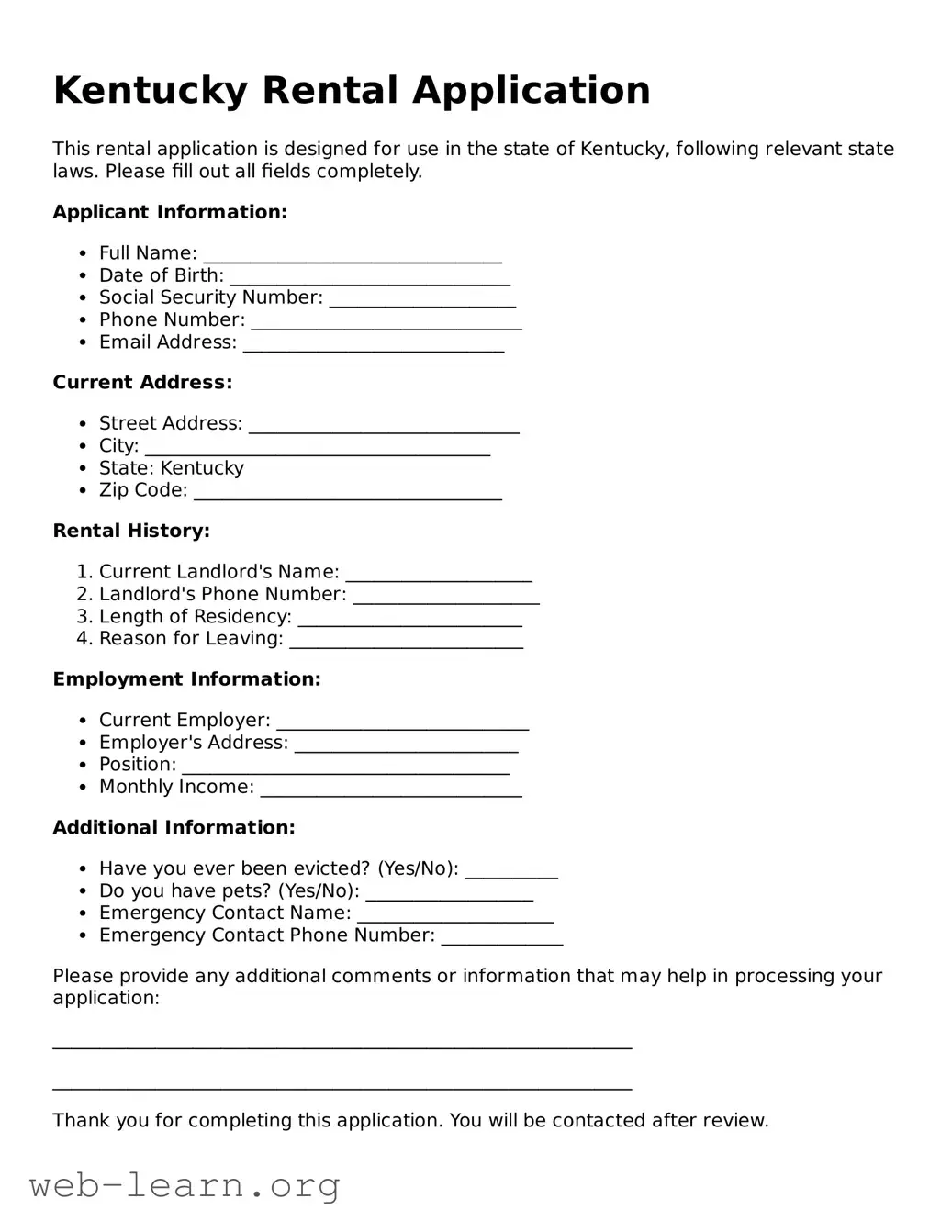Filling out a rental application in Kentucky is an important step for securing housing, yet many individuals make common mistakes that can jeopardize their chances. One significant error involves providing incomplete information. When applicants leave out critical details, such as their full name, social security number, or contact information, it raises red flags for property managers. They need comprehensive data to evaluate the applicant fully.
Another frequent misstep is offering inaccurate or misleading information. In an attempt to improve chances, some applicants may exaggerate their income or downplay past rental issues. This tactic can backfire. Property managers often conduct background checks and verify income, so discrepancies may appear during this process.
Failure to read the application thoroughly is also a common pitfall. Each section of the rental application serves a purpose, and misunderstanding or overlooking instructions can lead to mistakes. For instance, an applicant might neglect to sign the consent form, which authorizes the landlord to run background checks.
Applicants sometimes forget to include references, which can weaken their applications. It is crucial to provide reliable contacts who can vouch for an individual’s rental history or character. An application that lacks references may suggest to a landlord that the applicant does not have a strong support network.
Another mistake revolves around the timing of submission. Some individuals try to rush through their applications, believing that quicker submissions will give them an edge. However, haste can lead to errors that may cost them the rental opportunity. Taking the time to carefully fill out the form can yield better results.
Moreover, neglecting to check for spelling and grammatical errors is something many overlook. While minor typos might seem trivial, they can give the impression of carelessness. A well-presented application reflects attention to detail and professionalism.
Many applicants also fail to mention special circumstances, such as having pets or specific rental needs. Omitting this information can create issues later. It’s better to be upfront about these considerations, as it fosters transparency and may lead to possible accommodations from the landlord.
Finally, some people do not follow up on their applications. A simple follow-up call or email can demonstrate enthusiasm and proactive behavior. It can reaffirm the applicant’s interest in the property and prompt the landlord to make a decision more swiftly.
